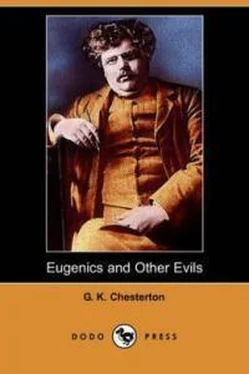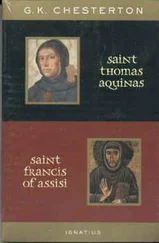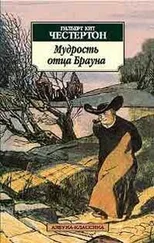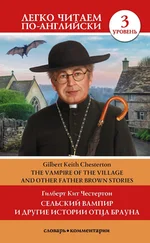One does not, as I have said, need to deny heredity in order to resist such legislation, any more than one needs to deny the spiritual world in order to resist an epidemic of witch–burning. I admit there may be such a thing as hereditary feeble–mindedness; I believe there is such a thing as witchcraft. Believing that there are spirits, I am bound in mere reason to suppose that there are probably evil spirits; believing that there are evil spirits, I am bound in mere reason to suppose that some men grow evil by dealing with them. All that is mere rationalism; the superstition (that is the unreasoning repugnance and terror) is in the person who admits there can be angels but denies there can be devils. The superstition is in the person who admits there can be devils but denies there can be diabolists. Yet I should certainly resist any effort to search for witches, for a perfectly simple reason, which is the key of the whole of this controversy. The reason is that it is one thing to believe in witches, and quite another to believe in witch–smellers. I have more respect for the old witch–finders than for the Eugenists, who go about persecuting the fool of the family; because the witch–finders, according to their own conviction, ran a risk. Witches were not the feeble–minded, but the strong–minded—the evil mesmerists, the rulers of the elements. Many a raid on a witch, right or wrong, seemed to the villagers who did it a righteous popular rising against a vast spiritual tyranny, a papacy of sin. Yet we know that the thing degenerated into a rabid and despicable persecution of the feeble or the old. It ended by being a war upon the weak. It ended by being what Eugenics begins by being.
When I said above that I believed in witches, but not in witch–smellers, I stated my full position about that conception of heredity, that half–formed philosophy of fears and omens; of curses and weird recurrence and darkness and the doom of blood, which, as preached to humanity to–day, is often more inhuman than witchcraft itself. I do not deny that this dark element exists; I only affirm that it is dark; or, in other words, that its most strenuous students are evidently in the dark about it. I would no more trust Dr. Karl Pearson on a heredity–hunt than on a heresy–hunt. I am perfectly ready to give my reasons for thinking this; and I believe any well–balanced person, if he reflects on them, will think as I do. There are two senses in which a man may be said to know or not know a subject. I know the subject of arithmetic, for instance; that is, I am not good at it, but I know what it is. I am sufficiently familiar with its use to see the absurdity of anyone who says, "So vulgar a fraction cannot be mentioned before ladies," or "This unit is Unionist, I hope." Considering myself for one moment as an arithmetician, I may say that I know next to nothing about my subject: but I know my subject. I know it in the street. There is the other kind of man, like Dr. Karl Pearson, who undoubtedly knows a vast amount about his subject; who undoubtedly lives in great forests of facts concerning kinship and inheritance. But it is not, by any means, the same thing to have searched the forests and to have recognised the frontiers. Indeed, the two things generally belong to two very different types of mind. I gravely doubt whether the Astronomer–Royal would write the best essay on the relations between astronomy and astrology. I doubt whether the President of the Geographical Society could give the best definition and history of the words "geography" and "geology."
Now the students of heredity, especially, understand all of their subject except their subject. They were, I suppose, bred and born in that brier–patch, and have really explored it without coming to the end of it. That is, they have studied everything but the question of what they are studying. Now I do not propose to rely merely on myself to tell them what they are studying. I propose, as will be seen in a moment, to call the testimony of a great man who has himself studied it. But to begin with, the domain of heredity (for those who see its frontiers) is a sort of triangle, enclosed on its three sides by three facts. The first is that heredity undoubtedly exists, or there would be no such thing as a family likeness, and every marriage might suddenly produce a small negro. The second is that even simple heredity can never be simple; its complexity must be literally unfathomable, for in that field fight unthinkable millions. But yet again it never is simple heredity: for the instant anyone is, he experiences. The third is that these innumerable ancient influences, these instant inundations of experiences, come together according to a combination that is unlike anything else on this earth. It is a combination that does combine. It cannot be sorted out again, even on the Day of Judgment. Two totally different people have become in the sense most sacred, frightful, and unanswerable, one flesh. If a golden–haired Scandinavian girl has married a very swarthy Jew, the Scandinavian side of the family may say till they are blue in the face that the baby has his mother's nose or his mother's eyes. They can never be certain the black–haired Bedouin is not present in every feature, in every inch. In the person of the baby he may have gently pulled his wife's nose. In the person of the baby he may have partly blacked his wife's eyes.
Those are the three first facts of heredity. That it exists; that it is subtle and made of a million elements; that it is simple, and cannot be unmade into those elements. To summarise: you know there is wine in the soup. You do not know how many wines there are in the soup, because you do not know how many wines there are in the world. And you never will know, because all chemists, all cooks, and all common–sense people tell you that the soup is of such a sort that it can never be chemically analysed. That is a perfectly fair parallel to the hereditary element in the human soul. There are many ways in which one can feel that there is wine in the soup, as in suddenly tasting a wine specially favoured; that corresponds to seeing suddenly flash on a young face the image of some ancestor you have known. But even then the taster cannot be certain he is not tasting one familiar wine among many unfamiliar ones—or seeing one known ancestor among a million unknown ancestors. Another way is to get drunk on the soup, which corresponds to the case of those who say they are driven to sin and death by hereditary doom. But even then the drunkard cannot be certain it was the soup, any more than the traditional drunkard who is certain it was the salmon.
Those are the facts about heredity which anyone can see. The upshot of them is not only that a miss is as good as a mile, but a miss is as good as a win. If the child has his parents' nose (or noses) that may be heredity. But if he has not, that may be heredity too. And as we need not take heredity lightly because two generations differ—so we need not take heredity a scrap more seriously because two generations are similar. The thing is there, in what cases we know not, in what proportion we know not, and we cannot know.
Now it is just here that the decent difference of function between Dr. Saleeby's trade and mine comes in. It is his business to study human health and sickness as a whole, in a spirit of more or less enlightened guesswork; and it is perfectly natural that he should allow for heredity here, there, and everywhere, as a man climbing a mountain or sailing a boat will allow for weather without even explaining it to himself. An utterly different attitude is incumbent on any conscientious man writing about what laws should be enforced or about how commonwealths should be governed. And when we consider how plain a fact is murder, and yet how hesitant and even hazy we all grow about the guilt of a murderer, when we consider how simple an act is stealing, and yet how hard it is to convict and punish those rich commercial pirates who steal the most, when we consider how cruel and clumsy the law can be even about things as old and plain as the Ten Commandments—I simply cannot conceive any responsible person proposing to legislate on our broken knowledge and bottomless ignorance of heredity.
Читать дальше








